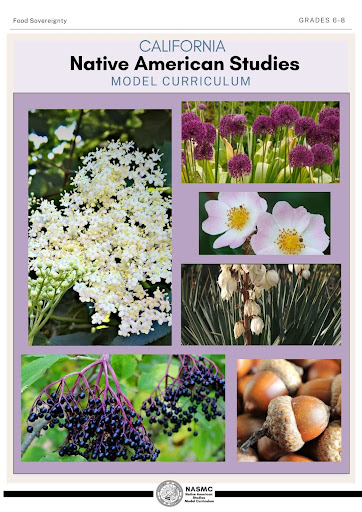Overview
Free Resources!
Traditional Plant Knowledge

Author:
Grade(s): 9th-12th Grades
Suggested Amount of Time: 60 minutes
Curriculum Themes
- Cultural Strengths
- Relationship to Place
Learning Goals
Students will identify traditional California Native plants and their uses for food, medicine, and tools.
Students will analyze how traditional plant knowledge supports ecosystems and food sovereignty.
Students will create a field guide page for a selected plant, showcasing its uses and cultural significance.
Students will present their findings, connecting their plant to broader concepts of sustainability and cultural preservation.
Lesson Overview
Students will delve into the traditional knowledge of California Native plants, learning about their uses in food, medicine, and cultural practices. Through research and the creation of a field guide page, students will investigate the ecological roles and cultural significance of a specific plant. This lesson emphasizes the importance of preserving traditional plant knowledge for ecosystem health and cultural continuity.
Teacher Background
Watch this video from the California Indian Culture and Sovereignty Center. Nicole Lim is discussing an overview of teaching Food Sovereignty. https://www.youtube.com/watch?v=9Iqw_CTPGQk
https://www.youtube.com/watch?v=9Iqw_CTPGQk
Teaching food sovereignty in the context of Native American history requires a nuanced understanding of the cultural, historical, and environmental factors that have shaped Indigenous relationships with food systems. Teachers will utilize the California Indian Culture and Sovereignty Center’s Food Sovereignty Toolkit to support instruction. Read through this toolkit to prepare for this unit. The resource provides background to support teachers in delivering these lessons effectively and respectfully. Access the California Indian Culture and Sovereignty Center’s Food Sovereignty Toolkit:
https://www.csusm.edu/cicsc/projects/projects_docs_images/foodsovereigntytoolkit.pdf